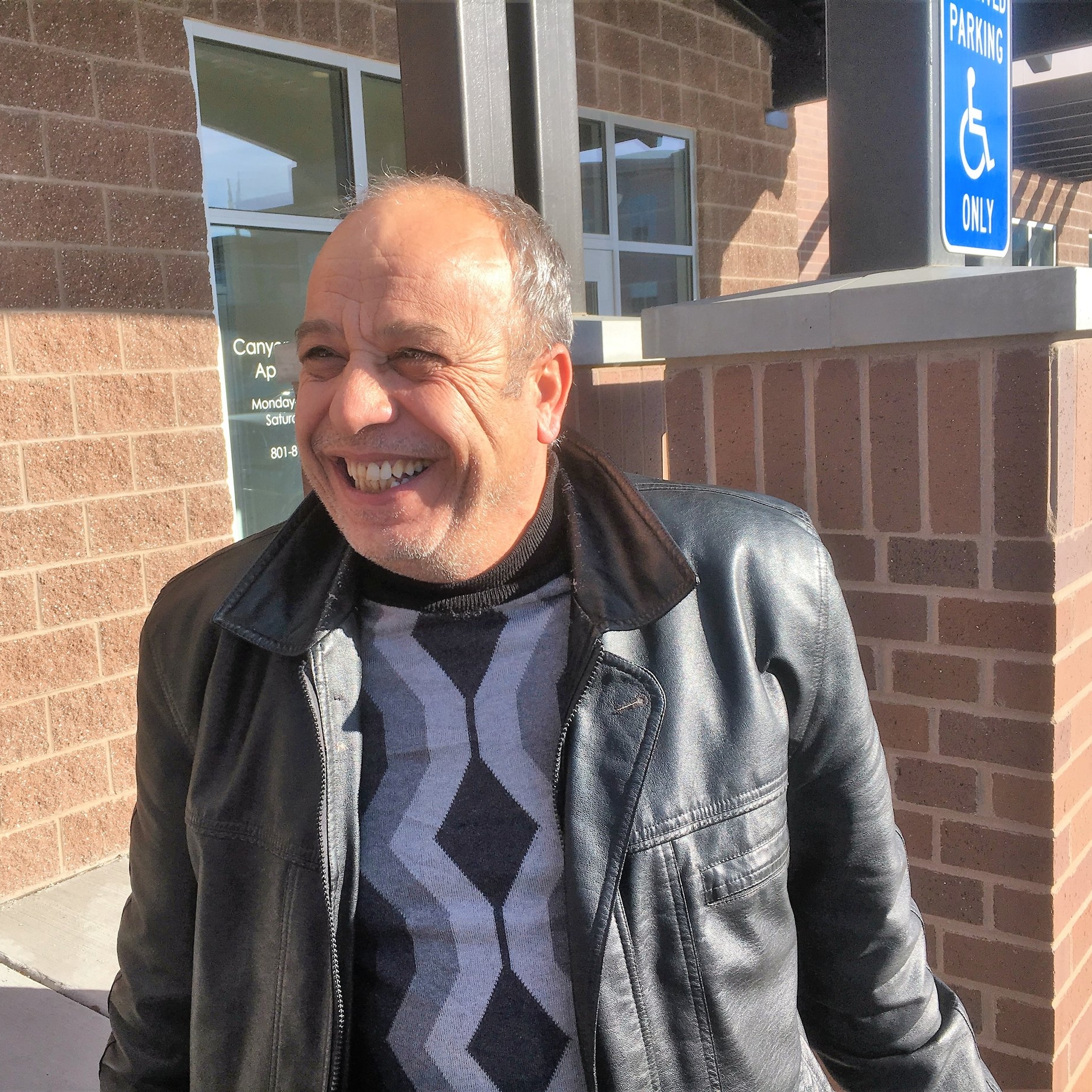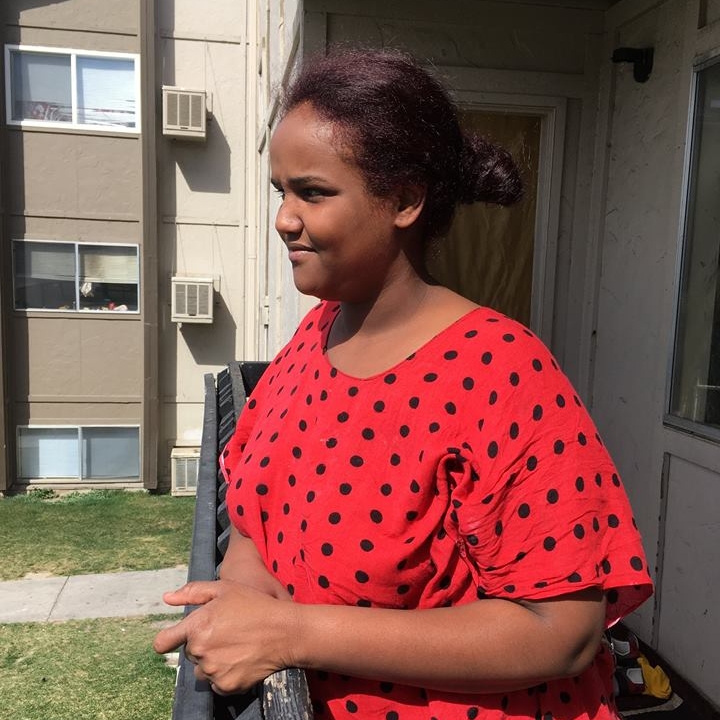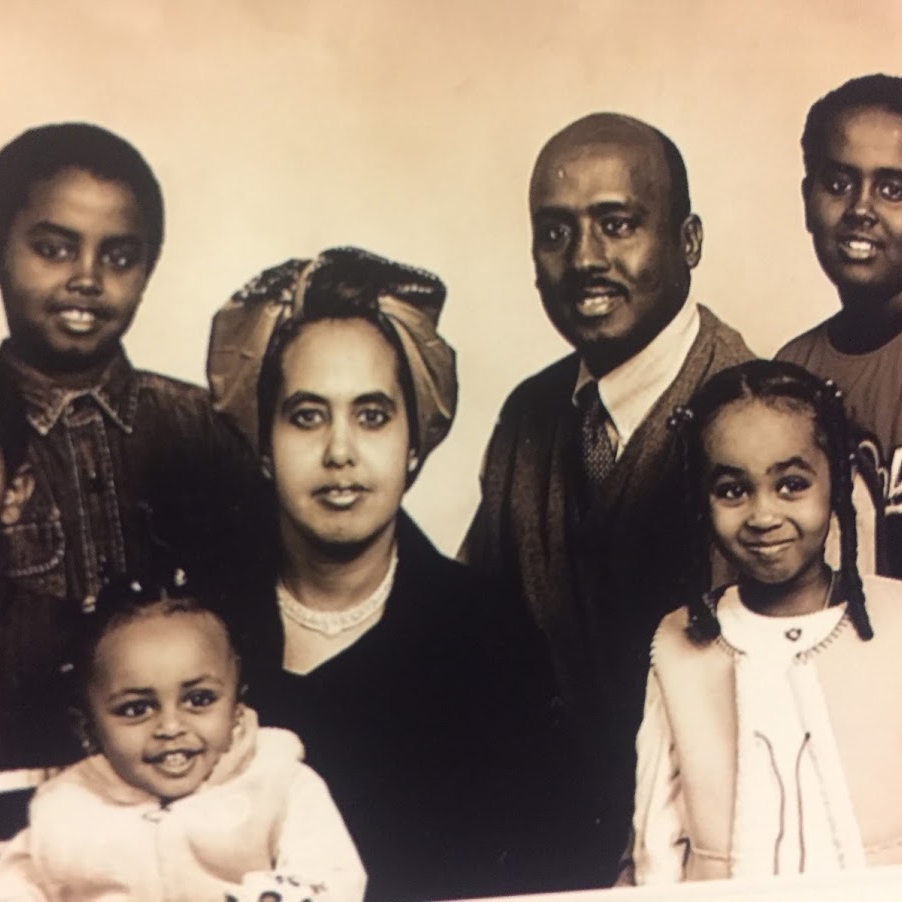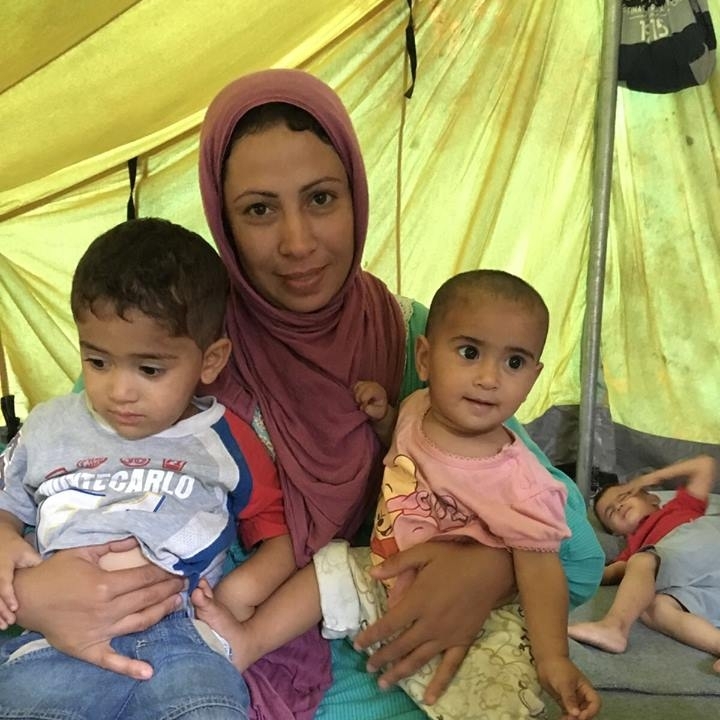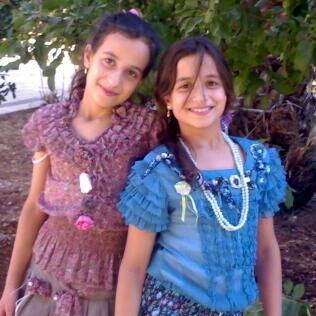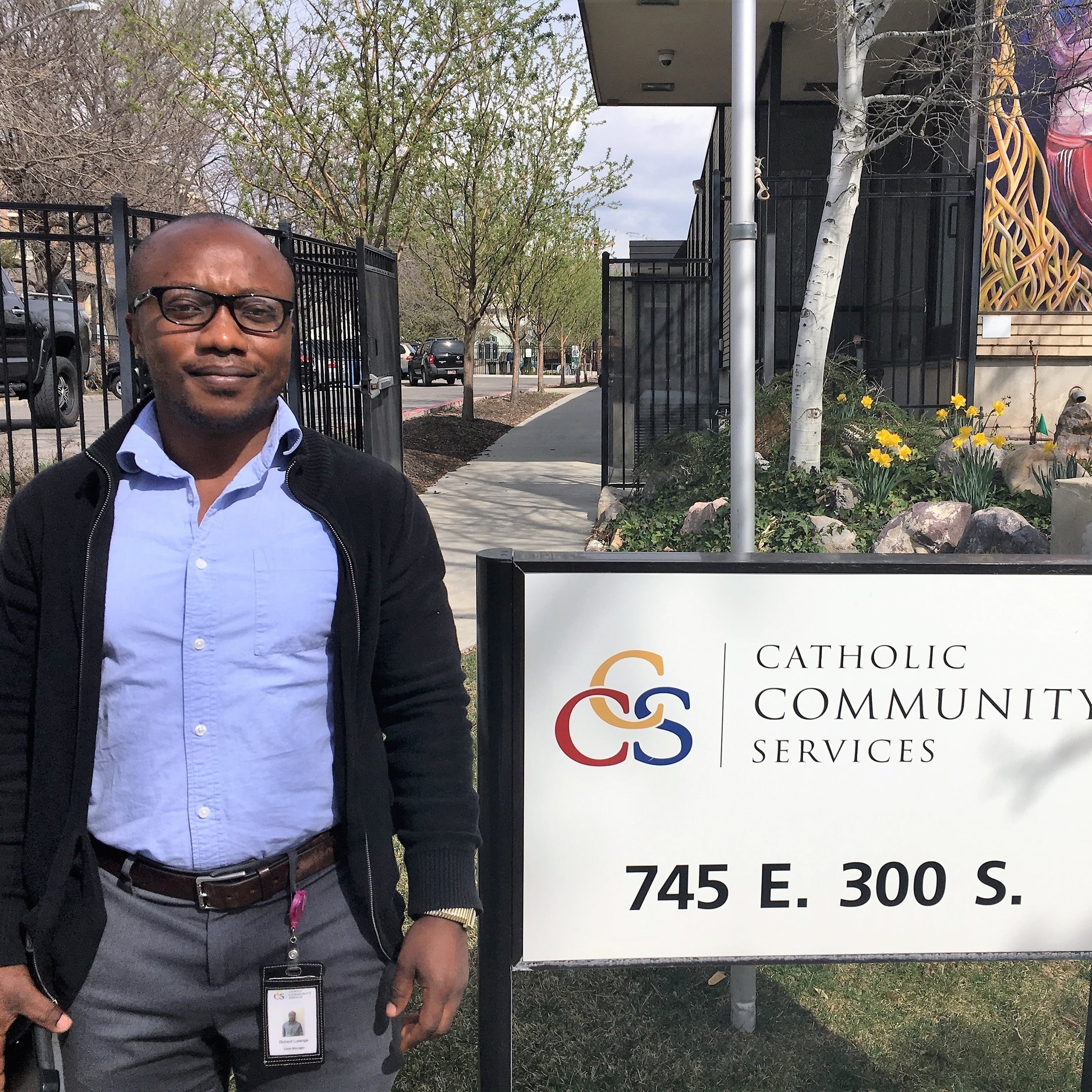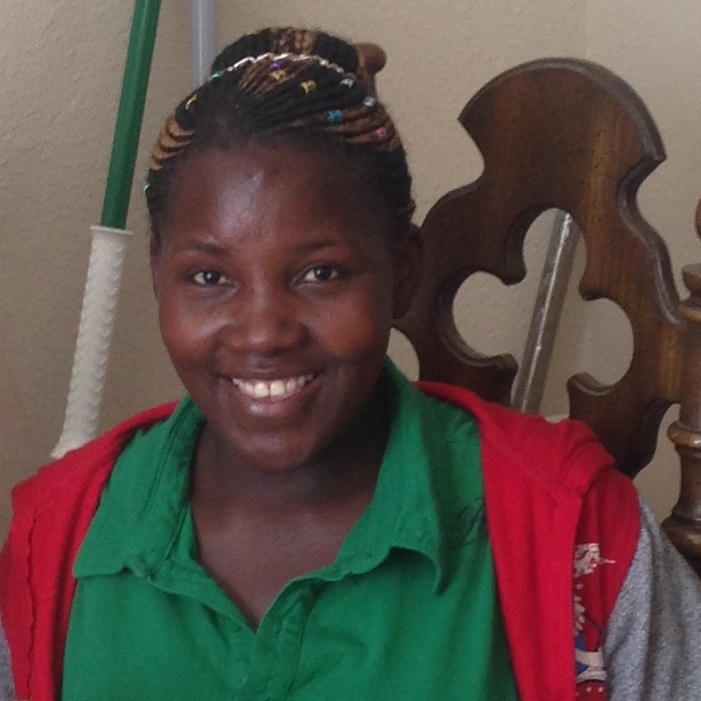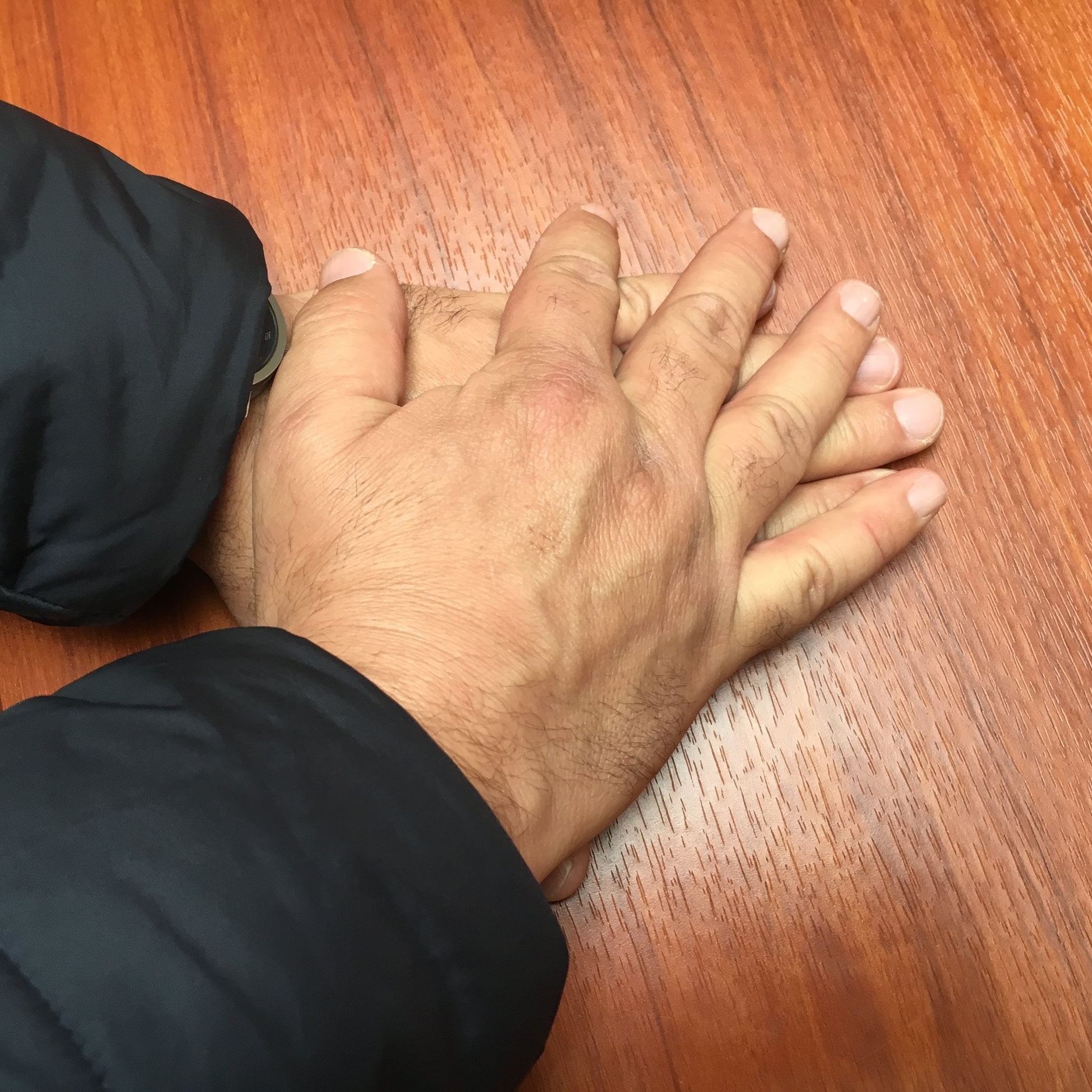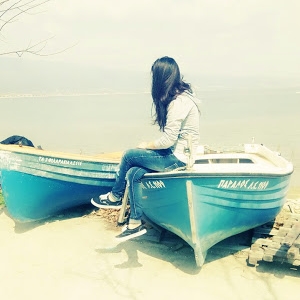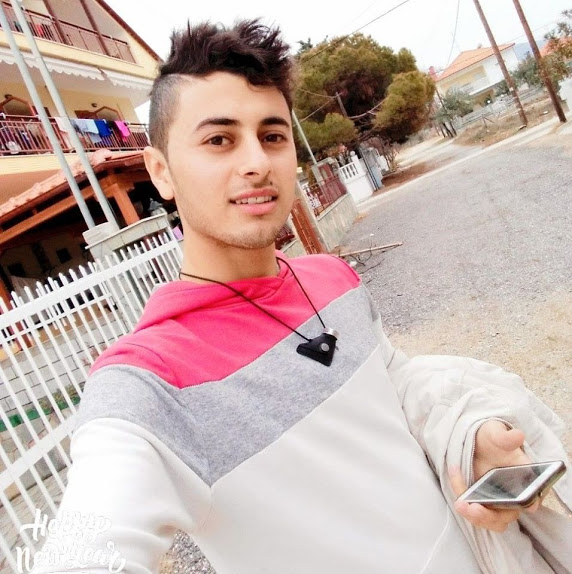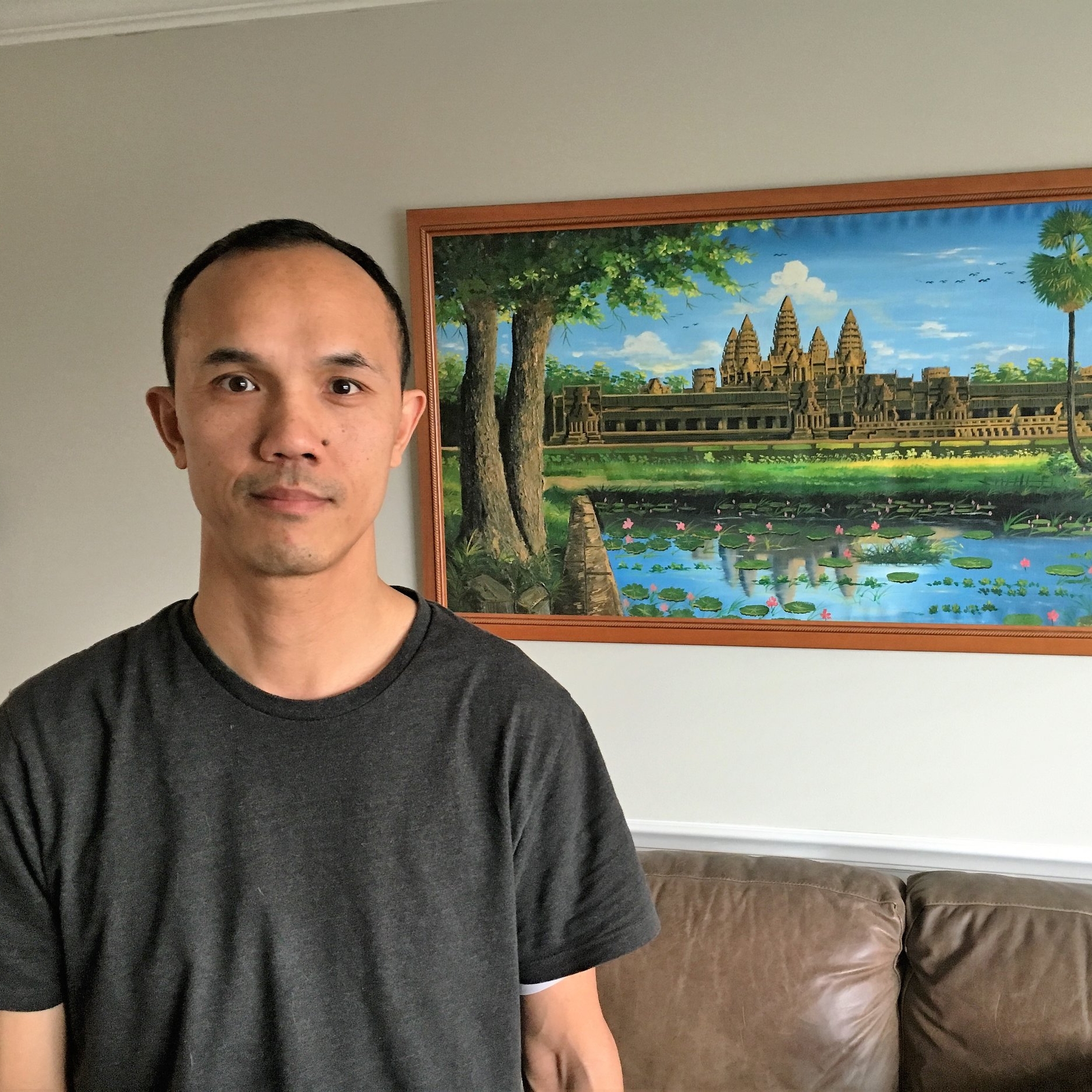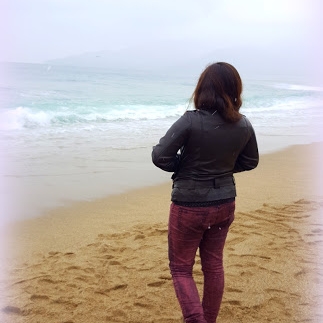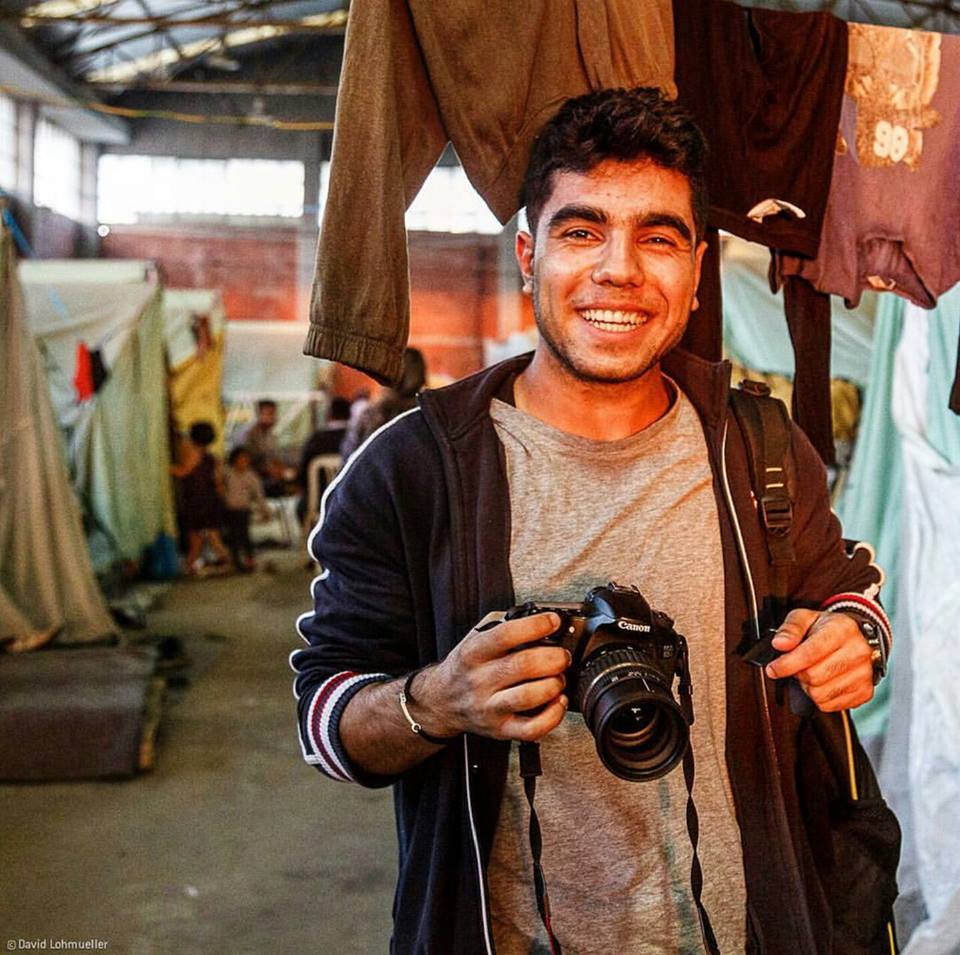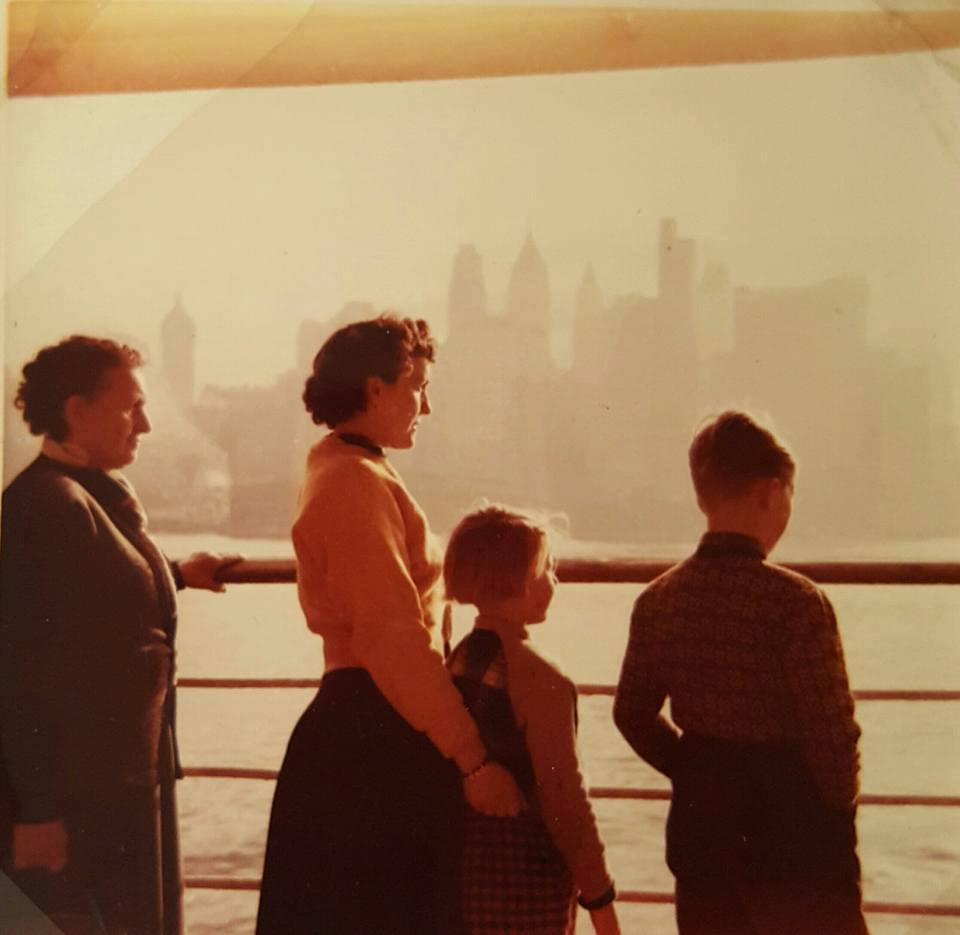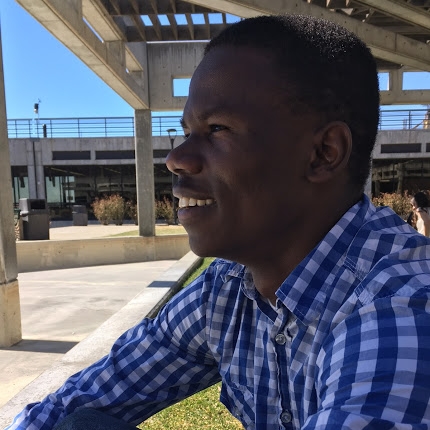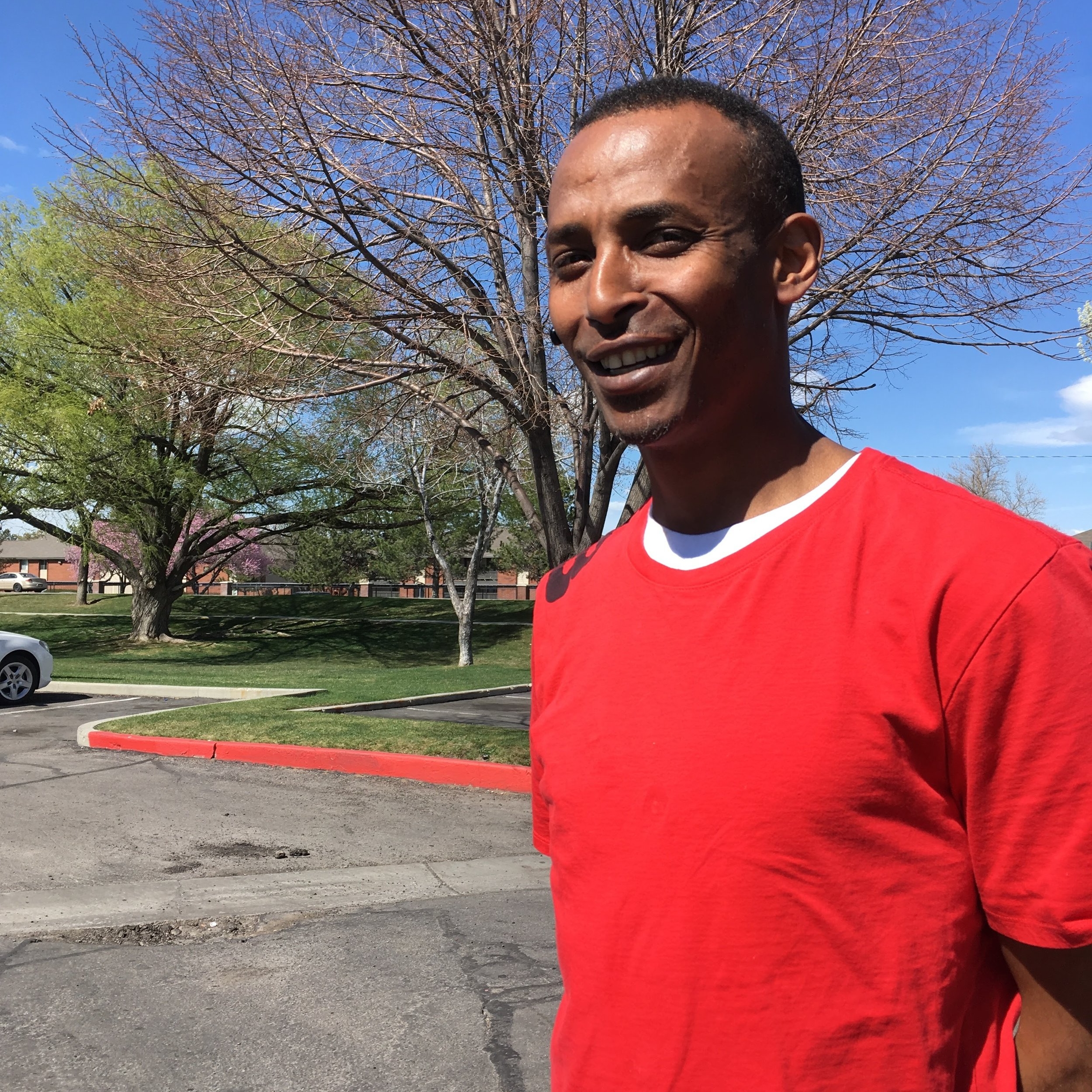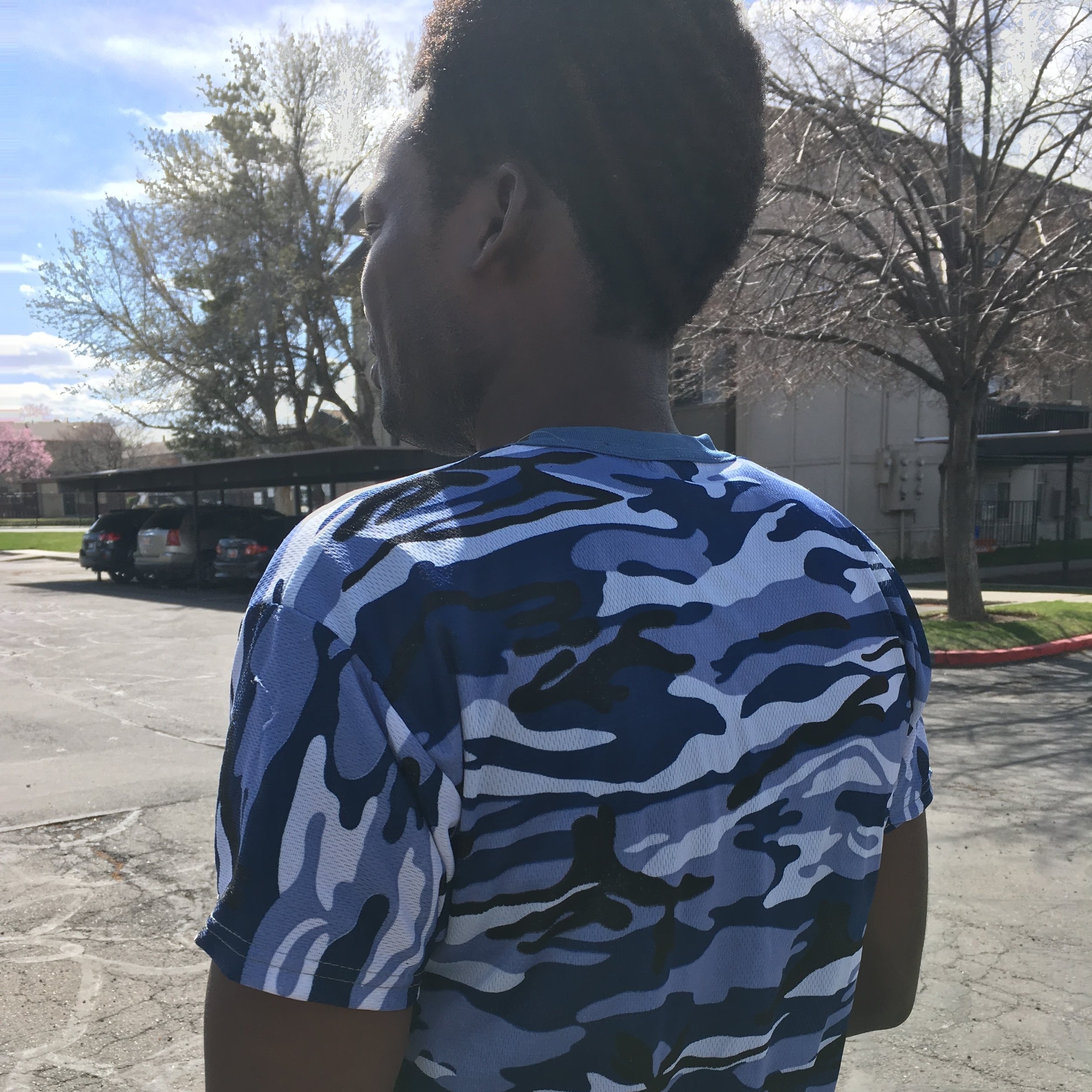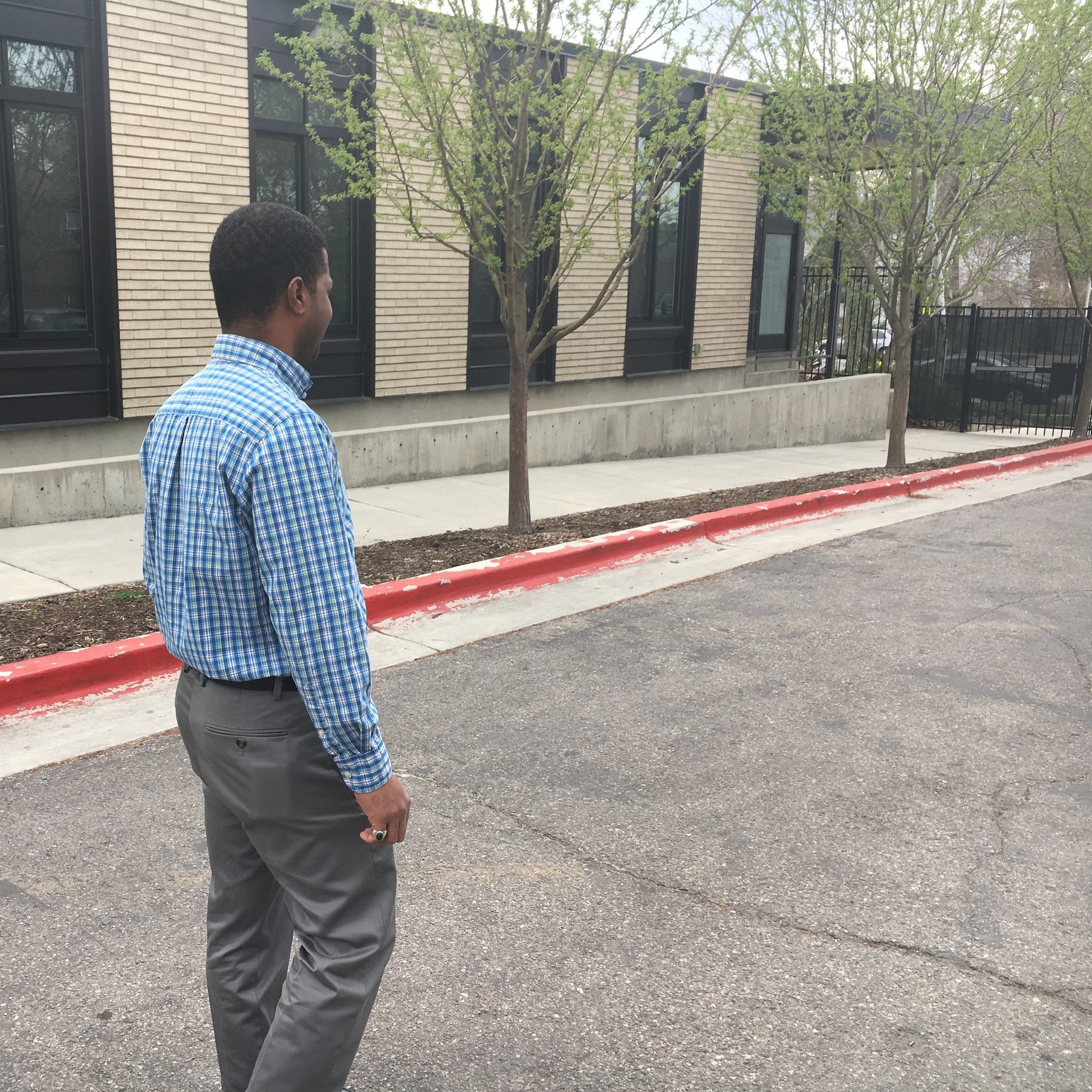“During WWII, My mother lived in our home in Rothenow, while my dad was serving in the German army in Russia. It wasn't a strategic place, but in 1944, the bombs started falling on our little city too. I was ten-days-old when she left the city to go live with my grandparents on the farm, where the bombs wouldn’t fall. On her thirteen-hour train ride, the bombers would come and strafe the train and they’d have to stop the train and hide in the forest. If the train wasn't damaged, they'd get back on and keep going. At one point, life became so difficult for her that she was going to drown the children and take her own life. She just didn't think she could live another day and manage. And my grandmother saved our lives by talking her out of it. Grandmother said, ‘God has protected us up to now and he will continue to protect us.'"
__________
“Once we were all together, my mother said, ‘Children, we’re never going home again”
I was born and raised in East Germany in a little town called Rothenow. Following the end of WWII, life was difficult for us. My father would scavenge and somehow find food for us to live on from day to day. Once, he found 100 pounds of wheat and 100 pounds of dried soups under a staircase in an abandoned Russian barracks. Our family lived on that food for six months. My mother would have us children go to bed really early. I never understood. Later I found out that we each only had one set of clothing that my mother would wash every night to keep us looking clean.
We lived under communism in Eastern Germany. We couldn't vote. We couldn't say anything against the government. We didn’t even hear the real news. The idea of religion at the time was also restricted. My family belonged to the LDS faith. My dad was the local leader there and our meetings were monitored. He was put on the black list because of the relationship of the church to the United States. Our home was searched without a warrant. My father felt like we were suffocating under those kind of conditions. He wanted something better for his family.
When I was eight years old, my family decided to escape out of East Germany to the west. Before you could enter into the free sector of Berlin, the East German police and Russians would stop all trains and search everything. Children were separated from parents and interrogated because children would tell the truth. So my parents didn’t tell us where we were going.
The Saturday before we left, my mother went outside and washed our front steps and my dad planted 100 strawberry plants in the yard, just like any regular Saturday. On Monday morning they left everything behind. All we could take were the belongings in one suitcase that made it look like we were going for a visit.
My dad had seen others escape and some who were caught in the process. He devised a plan for my family to cross the border in two separate places. Some time before, several of the children moved to live with my grandmother's sister near East Berlin. My mother and my dad and my oldest brother stayed in our hometown of Rothenow. At the time, you could receive permission to visit family members in West Berlin, but you could never take the entire family across the border. Part of the family was always held as a hostage so the rest of the family would return. Because we were living in separate locations, both parties received permission to visit my uncle who lived in the American sector in Berlin. In this day and age of computers, we would have been caught.
We crossed the border about the same time in two different locations and then we met at the bahnhof [train station]. Once we were all together, my mother said, ‘Children, we're never going home again.’”
__________
“I remember living in a hall with 200 other people”
"During our very first night in West Germany, we slept on the hard floor of a hallway somewhere. The next day we were able to make contact with the refugee system and my father declared himself a political refugee seeker. We stayed in a refugee camp where they processed new refugees that had arrived. It was an old war factory that had been abandoned in Berlin that had been filled with hundreds and hundreds of double bunk beds. I remember living in a hall with 200 other people.
After six weeks, we were assigned to another refugee camp in the northern German city, Brahmand. The camp we lived in there was an abandoned Germany Army barracks that they had turned into a refugee camp. There were seven huge buildings. There was a men's hall for single men and a women's hall for single women. Our family was lucky enough to get one room for our family. The seven of us (my mom, my dad, the four children, and my grandmother) lived in this one room for two years.
Because of the isolation of the camp there wasn't a school we could attend. So the refugee camp set up their own school. I specifically remember reading Dick and Jane books because most of the refugees there were trying to go to the United States. So I learned ‘Yes’ and ‘No’ and ‘Dick’ and ‘Jane’ and ‘See the dog run’ and that was my extent of English.
At the beginning, my dad was not allowed to work. None of the refugees were. But after awhile, he received permission to do labor on the docks of a nearby shipping town. It wasn't full time but he was able to earn a little more money for the the family than he would have been able to otherwise.
The West German government was phenomenal in supporting refugees. We were given a stipend--each person received 50 cents a day from the German government. At the camp there was a big auditorium, a kitchen, and a big lunch room where they would prepare breakfast, lunch and dinner for the families of the refugees.
We always knew living in the camp was a temporary situation. Although we were very, very grateful to be in a place where we had security, safety, and roof over our head and food, it wasn't a comfortable place. There were refugees coming in and out so there was a lot of turnover. It was hard to make friends because they'd be gone the next day. We lived there for about two years until my parents got permission to immigrate to the United States. That was the dream come true.
When they announced our date of departure, we were overjoyed. But right before we left, my older brother Dee got really, really got sick. He had a liver problem that precluded him from travel. Now the decision had to be made, do we skip our date and not go or do we go and leave him behind? We decided to go. Can you imagine a mom leaving one of her children behind? But the idea of not having that opportunity come again or possibly having to wait way longer weighed so heavily on them that they decided to leave him behind."
__________
“She told us that it was the symbol of freedom. Now, we were in a free country.”
“We took a ship to cross the ocean. We left from Holland, went to France, Canada, then New York. I remember my mother waking us up one early early morning. My sister and I didn’t know what was going on. Mother said,’You've got to get dressed and come upstairs!’ It was still dark outside and I wondered what was going on. We all got dressed and went upstairs and just at that time the boat was slowly moving into the New York Harbor. She pointed to the Statue of Liberty. As a child, I didn't understand, I did not know the meaning of it, so my mother explained. She had learned about it and knew what it stood for. She told us that it was the symbol of freedom. Now, we were in a free country.
A few years ago, my wife and I were able to take all of our kids back to the New York harbor to see the Statue of Liberty. We explained how precious a symbol that is, how precious this country is and that we should never take the freedoms that we have here for granted. Because someone fought for them; someone earned it for us that we could partake of it, but for us it was just given. Someone else gave their life for it. Our whole family loves this country and what it stands for. We have problems like any other country but we have so many privileges that billions of people in the world do not have--the richness of life, the goodness of life, especially the freedoms that we have. "
__________
“I was totally afraid and totally lost”
“As a ten year old arriving in the United States, I was blown away by the size of the country. We crossed on a trailway bus from New York to Salt Lake City. I knew Germany was big, but it was not that big. I had never seen so many cars in my whole life! Once we arrived in Salt Lake City, our friend picked us up at the railway station and took us to his home in his car. He drove an old Nash Rambler, but to me it was like the most beautiful thing. I never got to ride in a car in Germany.
My mother's sister had received permission to immigrate to the United States about six months prior to us getting our permission. They immediately invited us to come stay at their home. There were six of us and it was a small home. I'm sure we were a big impact. But I remember I just the delicious food that they had that I so cherished.
My mom and dad immediately enrolled in evening English courses. That was the first thing they knew they had to do, to crack that barrier of language to communicate to assimilate. Half a year later, they both attended classes to learn about the United States, the government and how this land functions. If they passed the exam they were eligible to become citizens. My dad and my mom took the course and were sworn in to be citizens of the United States. That was a special, special day.
My dad immediately found work even though he didn't speak the language. He was a laborer so he could communicate a lot with hand signals. As soon as he had an income, we found a home that we could rent, which wasn't that far away from where my aunt and uncle lived.
When we got moved into our place, my parents said it was time for me to attend school. I was put in a fourth grade class in the middle of the school year. I had no friends. I didn't know a soul. I didn't speak the language. I was totally afraid and totally lost.
My teacher recognized that it was hard to have a little boy without language skills come into a class. There was another German girl in the class who was also a refugee. The teacher would allow us to go out into the hall so she could teach me English for an hour or two a day. Once, my teacher gave the class time to write a story. I was still struggling, but I remember writing a very simple story. The teacher was so impressed with my little writing that he read it in front of the class. I was a little embarrassed but at the same time I felt proud that he would read mine.
The second world war had only ended nine years before, and when kids saw me and knew I was German, they were hard on me. I was called a “Nazi” and a “German pig.” It bothered me. That stigma stayed with me for quite some time. I felt like I didn't ever measure up and that I was inferior. That was hard to overcome.”
__________
“There’s no entitlement to the richness of life. You build it yourself.”
“I feel like I am the luckiest man on earth. I have so surpassed all my expectations that I had as a young man. I was able to achieve things that I never even dreamed possible. Through my education, I was able to have wonderful work opportunities to support the family and to own a home that is so much moregrandiose than I ever expected. To be a close family was one of our greatest goals and we've achieved that; I feel like that's the biggest blessing.
I feel like I'm the richest man in the world, not in riches of the world, but in richness of life. The one thing I try to teach my kids is to have gratitude because if you take things for granted then some entitlement comes. There is no entitlement to the richness of life. You build it yourself.
Relationships are the most precious of all of that. Because you don't have to be economically well to do to have a rich life. You can still live a wonderful, wonderful life. I just love living life. I wish more people could feel the way I feel. Maybe that's one thing I would wish for the future is that people recognize how to count the blessings more than to count the negatives. My glass is always half full. It's never half empty. I think I got that attitude because of what we have gone through coming from nothing physically or economically and now having everything. We have cars in multiplicity, food in our refrigerator and warm, clean water. There are so many people in the world that never have warm, clean water. We just go into a shower and turn the knob and this warm, clean, beautiful water bathes us. And there are people in the world that never ever experience that. But for us it's just a common, everyday. We have so many things that we take for granted. I still get on my knees at night and thank my Heavenly Father for a soft bed and clean sheets, because for other people that would be like living like a king. And we live that way every day.
Because our family had this amazing experience as refugees, we try to help refugees have a good experience in this country. There's so much to be done. I always say "Do whatever you can, but do something." If you don't do anything, I'm not sure that's gratitude."
_______________________________
From: Rothenow, East Germany
Current Location: Utah
Family: wife, 6 children, 10 grandchildren
Age: 73







